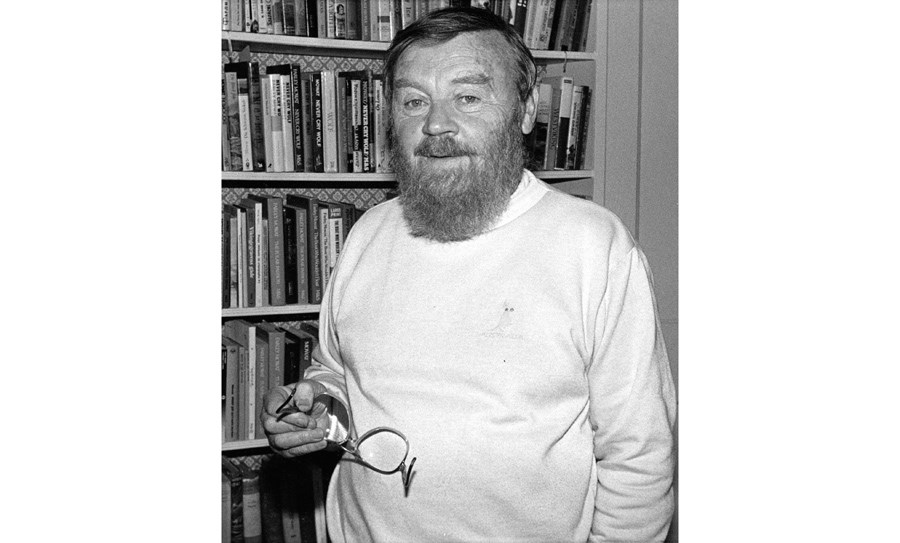TORONTO - Canadian author Farley Mowat, a master storyteller and tireless defender of nature and wildlife, has died at age 92, his assistant confirmed Wednesday.
From the time he was 13, Mowat was fiercely dedicated to writing about the natural world. As a young teen he started a magazine called Nature Lore and had a column in the Saskatoon StarPhoenix.
He went on to write some 40 books, many based on his own adventures and travels. He said he was lucky to be able to combine his two passions: writing and nature, calling it "the only subject I really want to write about."
Throughout his life, Mowat was adamant that humans learn to live in harmony with the natural world.
"It's a matter of survival," he told The Canadian Press in a 2006 interview. "Either we learn to do this, or we cease to exist. We have no God-given right to survive forever. We have screwed up so badly in so many ways so obviously that only utterly stupid species would consider that we have much of a future, as things stand.
"Only by recognizing how far off-track we've gone, are we likely to be able to recover our footing and carry on?"
One of his most famous books, "Never Cry Wolf," is said to have changed the way people saw wolves; after the Russian version was published, the government there even banned the killings of one of Mowat's favourite creatures.
But the book, based on Mowat's own experiences studying wolves in the North, was not without controversy.
The May 1996 issue of now-defunct Saturday Night magazine featured an article by John Goddard titled "A Real Whopper," accusing Mowat of exaggerating key facts in the book, such as how long he actually spent studying wolves in the North and if he visited an Inuit camp.
Mowat later issued a retort, saying Goddard "consistently misses the truth behind these 'facts."'
Mowat was born in Belleville, Ont., in 1921. The son of a librarian, he grew up in Windsor, Ont., and Saskatoon. He studied at the University of Toronto. His novels and other non-fiction works have been translated into more than 20 languages.
A remarkable storyteller, Mowat said the pleasure he got from writing was paramount.
"My motives have been selfish in a peculiar way," he said, "not to attempt to gain recognition, fame, to become an icon, to become a Conrad Black or somebody like that, but simply to satisfy my own appetite for good stories."
Never one to shy away from controversy, Mowat was outspoken about many environmental and social issues.
He called Canada's treatment of aboriginals "abominable," said the seal hunt was, "perhaps the most atrocious single trespass by human beings against the living world that's taking place today," and said hunts in general were "symbolic of the massive destruction that we've visited upon life."
Although Mowat felt the struggle to preserve nature and wildlife was an ongoing one, he said: "I could honestly say I've fought the good fight."
He was awarded the Queen Elizabeth II Jubilee Medal in 1956, the Governor General's Award for "Lost in the Barrens" in 1956, the Leacock Medal for Humour for "The Boat Who Wouldn't Float" in 1970, the Order of Canada in 1981 and a Lifetime Achievement Award from the International Fund for Animal Welfare in 2003.
"Every book is a total experience in itself," he said. "It's a world in itself and when you finish the book you're moving on to another world."
Reaction to the death was immediate. In Ottawa, Liberal Leader Justin Trudeau said the author was "a family friend" from childhood.
"He came up to Harrington Lake a few times .... ah, got along great with my father," said Trudeau. "He gave us a labrador retriever who we called Farley who had a penchant for running after porcupines as I remember."
He added: "Mr. Mowat obviously was a passionate Canadian who shaped a lot of my generation growing up with his books and he will be sorely missed."



